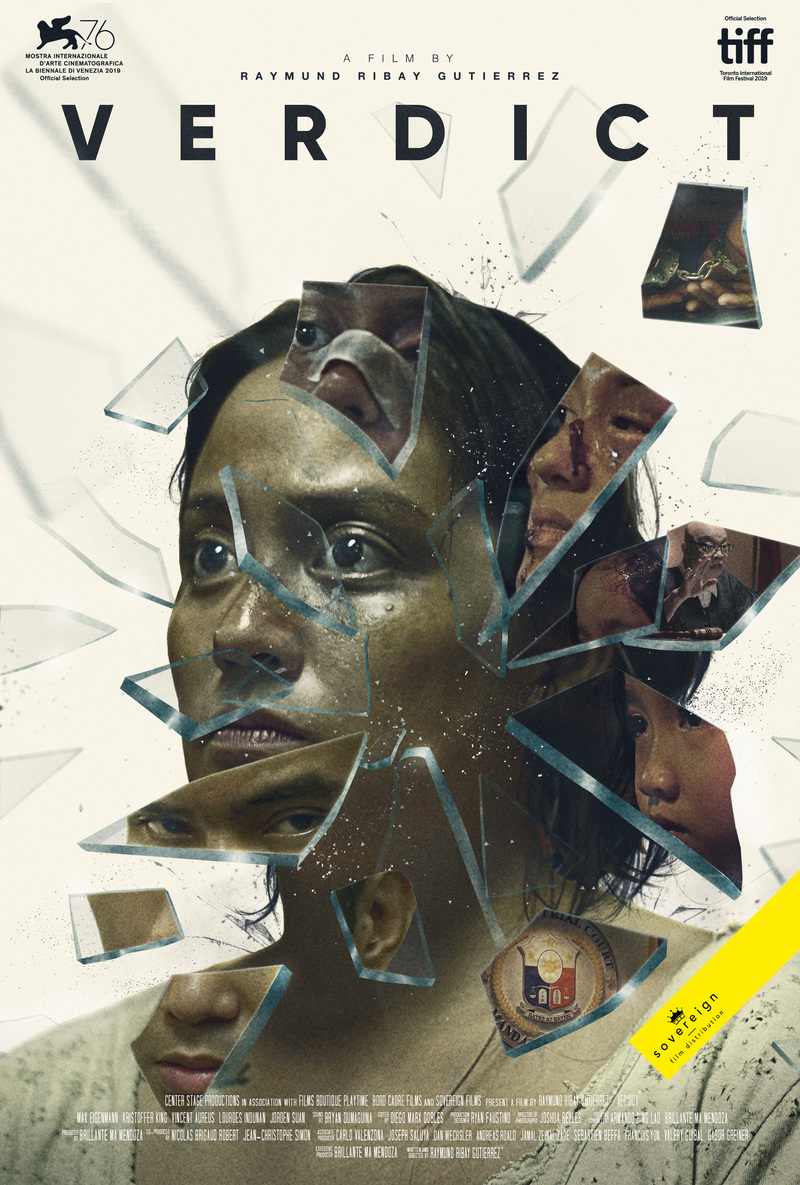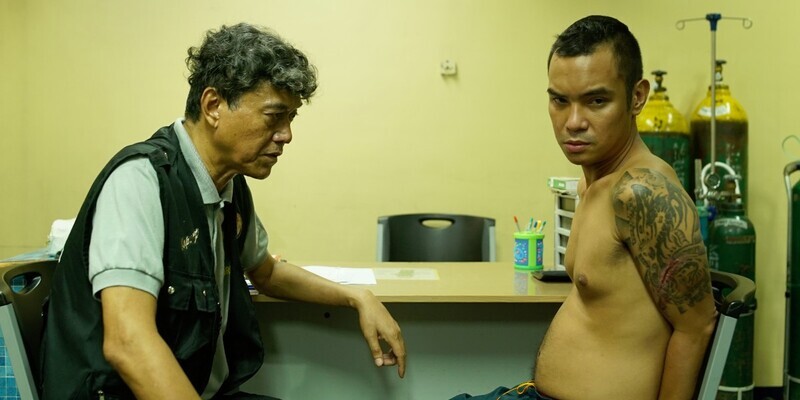
A woman finds herself and her daughter in danger when the authorities
refuse to take action against her violently abusive husband.
Review by
Benjamin Poole
Directed by: Raymund Ribay Gutierrez
Starring: Max Eigenmann, Kristoffer King, Dolly De Leon, Perry
Dizon, Jordhen Suan

Imagine hitting someone. Like, actually curling your hand into a fist and
moving it with your arm with velocity designed to make the intended
recipient of the propelled hand feel thudding pain. It is just so weird,
the very concept of harming someone. In its first measure of
sophistication, writer/director Raymund Ribay Gutierrez’s stunning
Verdict takes the cruel absurdity, the simple wrongness of
violence for granted. With its intimate focus on the experience of abused
wife Joy (Max Eigenmann) as she attempts to bring her bullying
husband Dante (Kristoffer King) to, as she puts it, ‘justice’
through the cramped halls of the Filipino justice system,
Verdict is a pitiless, and un-sensationalised, examination
of a barely-there legal system. A jurisdiction which is seemingly weighted
against the dynamics of civilised society which most of us would be able
to take as a given.

We open in the narrow confines of Joy and Dante’s flat, which they share
with their six year old daughter, Angel. Here and throughout, DOP
Joshua Reyles’ camera is incredible. With the sort of handheld,
flickering horror that characterised something like
28 Days Later, we are fully immersed in the violent action as Dante, who is a
small-time drug dealer, returns home in a bad mood and proceeds to abuse
Joy, first verbally and then physically. It is obvious that this is a
regular occurrence, with ominous shots of clocks and Joy’s haggard face
making it clear that she is living on the edge. This time, however, Dante
manages to accidentally clip Angel, propelling Joy to self-defence using a
kitchen knife, which she lashes out with to cut Dante’s arm across one of
his stupid gang tattoos.

The filmmaking of this scene is so vivid, so agitated and urgent, with the
violence depicted in the similarly clumsy way in which it occurs in real
life, it is all you can do not to leap into the screen and intervene.
Which is more than can be said for the other denizens of the Tondo
District where Joy lives. Her neighbours just dispassionately watch as she
escapes, bloody and bruised, to get to the police with Angel. In this
early sequence, Verdict establishes its unflinching tone,
but also its technical virtuosity. From the challenging verisimilitude of
the violence at the start, to the low-key orchestration of piled in extras
and outside shots, Gutierrez creates a world that is living and breathing;
like its threat of violence, the sense of place in
Verdict is inescapable.

We segue across months to the trial against Dante, via periodic examples
of the challenges Joy has to contend with. As she sits there with a broken
nose in the police station, the possibility that she is lying is broached.
The neighbours who witnessed the attack are reluctant to testify, possibly
due to potential repercussions from Dante, but most likely because they
know the prosecution is a lost cause. The court room is a sweaty, pressure
cooker of an office: the constantly fluttering fans of the ‘gallery’ and
the phatic hum of murmurs and reactions from the court, make these scenes
aggravating to watch: how can any sort of clear-headed justice be enacted
in these cramped quarters? In the film canon of women enacting retribution
for violence, Verdict is a sobering tonic to the cathartic
pleasures of rape revenge movies, where sluggish, and obscured due process
is almost as painful and beleaguering as the crime itself.

Verdict is on UK/ROI VOD from March
12th.

